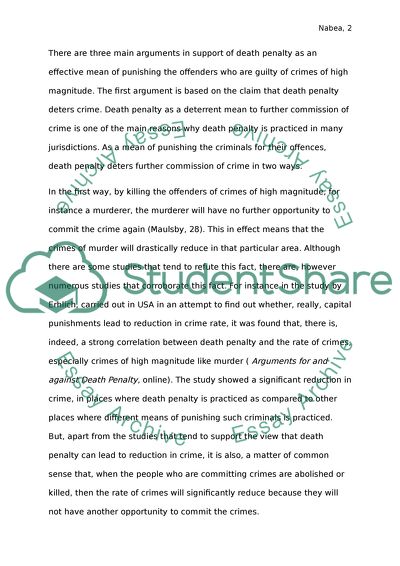Cite this document
(Social Justice: the Issue of Death Penalty Essay Example | Topics and Well Written Essays - 2750 words, n.d.)
Social Justice: the Issue of Death Penalty Essay Example | Topics and Well Written Essays - 2750 words. https://studentshare.org/social-science/1476108-social-justice
Social Justice: the Issue of Death Penalty Essay Example | Topics and Well Written Essays - 2750 words. https://studentshare.org/social-science/1476108-social-justice
(Social Justice: The Issue of Death Penalty Essay Example | Topics and Well Written Essays - 2750 Words)
Social Justice: The Issue of Death Penalty Essay Example | Topics and Well Written Essays - 2750 Words. https://studentshare.org/social-science/1476108-social-justice.
Social Justice: The Issue of Death Penalty Essay Example | Topics and Well Written Essays - 2750 Words. https://studentshare.org/social-science/1476108-social-justice.
“Social Justice: The Issue of Death Penalty Essay Example | Topics and Well Written Essays - 2750 Words”. https://studentshare.org/social-science/1476108-social-justice.


